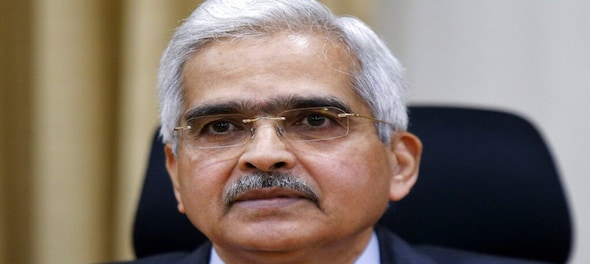
Reserve Bank Governor Shaktikanta Das on Monday said the decision with respect to issuance of sovereign green bonds announced in the Budget will be taken next month. Finance Minister Nirmala Sitharaman in her Budget speech announced that the government will issue sovereign bonds to mobilise resources for green infrastructure.
"The proceeds will be deployed in public sector projects which help in reducing the carbon intensity of the economy," she had said. Speaking at a media briefing after customary post Budget address of the Finance Minister to RBI board members, Das said the monitoring group on cash and debt management will meet next month and it will plan for the issuance of green bonds.
"The main rationale behind going for green bond is that world over there are a lot of investors who have dedicated funds to invest in green bonds. So, basically when you float a green bond, ... (it) has a specified and dedicated purpose," he said. It will help widen the participation of international investors in the domestic bond market because there are a lot of funds internationally available which are dedicated for investing in green infrastructure projects.
Also Read
The Budget had indicated that green bonds are part of the overall borrowing for the next financial year. During 2022-23, the government plans to borrow a record Rs 11.6 lakh crore from the market to meet its expenditure requirement to prop up the economy hit by the COVID-19 pandemic.
Talking about inclusion of G-secs in the global indices, he said, "It is a process and earlier fully accessible route was introduced whereby certain G-secs are fully accessible to the foreign investors. We are moving towards that. It is work in progress as far as inclusion in indices is concerned." The move would attract higher foreign flows as many overseas funds are mandated to track global indices. It will also help bring in large passive investments from overseas, as a result of which more domestic capital would be available for industry as crowding out would be reduced. Some specified securities which will be listed on the indices will not have a lock-in requirement.
Globally, there are some large institutional investors that track these indices, such as Bloomberg Barclays Emerging Market Bond index, for positional decisions on sovereign papers. To facilitate this, the RBI in 2020 opened certain specified categories of government securities (G-Secs) for non-resident investors as part of an initiative to deepen the bond market.
Talking about inflation, Das said that the "momentum of inflation is on a downward slope" and the central bank would continue to strike a delicate balance between the need to contain price rise and ensure economic growth. The Reserve Bank's inflation projections, Das said, are "robust" but contingent on downside and upside risks associated with the movement of global crude oil prices.
The RBI takes into account a particular range within which crude prices are expected to fluctuate considering all the factors that can be anticipated and that can be sort of foreseen as of today, he said. "... Our inflation projections... I would say it is quite robust and we stand by it. If there is something of course totally unforeseen and you know, which nobody can expect that is different and we have said that it is contingent on you know the risk the downside or the upside risk to these projections is the crude prices," the Governor added.
He further said price stability, which basically means maintaining and adhering to the inflation target, is definitely uppermost in "our mind" and the Reserve Bank is fully aware of its commitment to inflation, keeping in mind the objective of growth, he added.
"... If you look at the momentum of inflation, right from October onwards, last October onwards, the momentum of inflation is on the downward slope" Das said. He further said it is primarily the statistical reasons which has resulted in higher inflation, especially in the third quarter, and the same base effect will play in different ways in the coming months.
Last week, the RBI had said headline inflation is expected to peak in the fourth quarter of the 2021-22, within the tolerance band and then moderate closer to target in the second half of 2022-23, providing room for monetary policy to remain accommodative. The government has tasked the RBI to keep Consumer Price Index (CPI) based inflation between 2-6 percent.
First Published: Feb 14, 2022 6:08 PM IST
Check out our in-depth Market Coverage, Business News & get real-time Stock Market Updates on CNBC-TV18. Also, Watch our channels CNBC-TV18, CNBC Awaaz and CNBC Bajar Live on-the-go!


UP constituencies to witness three-cornered fight in second phase tomorrow
Apr 25, 2024 10:47 AM
BJP MP's wife challenges him in electoral battle for Etawah seat
Apr 25, 2024 9:39 AM

